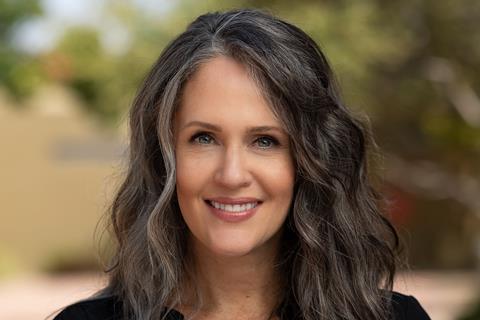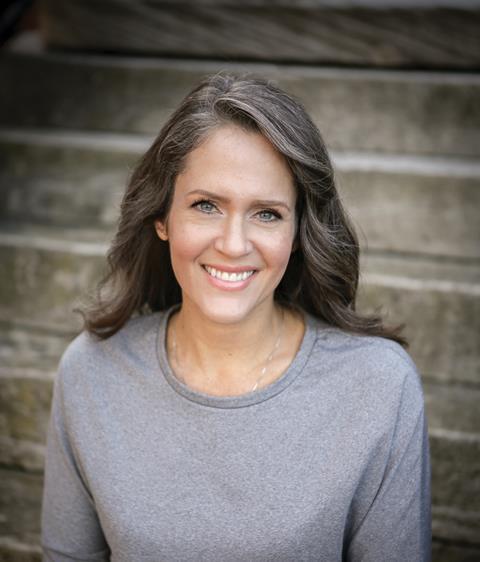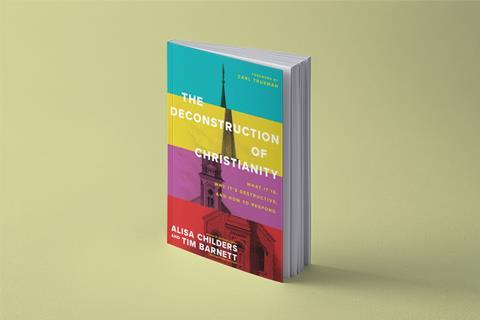Author, worship leader and respected apologetics speaker, Alisa Childers addresses the topic of deconstruction head on, giving us insight into her upcoming book, The Deconstruction of Christianity

JK: Tell me a bit about your journey of faith?
AC: I was a very committed Christian as a young girl; sincere and devout. By the time I was twelve I had read through the whole Bible, eager to grow. I loved Jesus with all my heart.
My dad was a pioneer of the contemporary Christian music industry – his music featured in the Jesus Revolution movie – and I later followed in his footsteps, becoming part of the late 1990s band, ZOEgirl. Of course, there were valleys and challenging seasons growing up, but I never had any significant doubts regarding my faith; I always knew the gospel was true.
It wasn’t until I was an adult, married with kids, that everything I believed about God intellectually was tested. A pastor invited me to attend a discussion group that systematically challenged my core beliefs and eventually led to a crisis of faith, bringing me to the edge of agnosticism. Bewildered, I began to wonder if everything I believed was built on logical fallacies rather than objective truth.
Pursuing the truth about reality and engaging our doubts is a healthy, biblical process
One night I called out to God, desperately needing him to bring clarity. In his faithfulness, God led me to study theology, history, archaeology – anything I could get my hands on – to discover what was actually true. It took a few years, but as I wrestled and explored, my faith became firm beneath me again. I unpack all this more in my book, Another Gospel? (Tyndale House).
JK: Would you call what you went through, deconstruction?
AC: At one point I described the faith crisis I experienced in my late 20s/early 30s as deconstruction, but I no longer use this terminology to describe my personal experience. Pursuing the truth about reality and engaging our doubts is a healthy, biblical process that all Christians should be engaging with. We don’t need to use a new, post-modern word to describe it.
In our book, The Deconstruction of Christianity (Tyndale Elevate), we use the term deconstruction to refer to a specific movement that is primarily taking place online; distinguishing this from healthy, biblical doubt. The word deconstruction – as it manifests online and in popular culture– is a postmodern process of rethinking your faith without regarding scripture as a standard. It’s the idea that truth is found inside yourself. You are the truth maker.

JK: How can we distinguish between healthy doubt and deconstruction?
AC: Healthy doubt has truth at the centre; deconstruction seeks justification for unbelief. For example, someone may think the Church’s teaching on sexuality is toxic and harmful and deconstruct their faith around this preposition, rather than pursuing what is actually true – regardless of how it may make them feel.
Healthy doubt that thirsts for truth is necessary for maturity in faith, but unhealthy doubt that refuses to chase after objective truth often leads to deconstruction and the pursuit of what feels right inside yourself. In deconstruction it’s not about discussing what is true or false, it’s about what you personally think is harmful or liberating and responding accordingly. Biblical doubt and deconstruction are entirely different conversations.
JK: Why is it so important to talk about objective truth?
AC: Because our faith is based on it! If the resurrection is not an objective reality then Christianity is not true. But if it is true, then it’s true for everyone and has eternal consequences for everyone, because Jesus made very specific and exclusive claims about who God is and how to get to him. To pursue Jesus is to pursue truth. But these are foreign concepts in a postmodern society, where people have been indoctrinated to think: “I need to create my own truth inside myself and follow my own path.”
I think that the pursuit of objective truth will lead most people to Christianity because it is the best explanation for why the world is the way it is. There is evidence we can evaluate that points to the truthfulness of Christianity. I believe these things are testable – though, of course, not everyone is going to land in the same place.
JK: Why did you feel the need to write a whole book addressing deconstruction? Is it that big a deal?
AC: The deconstruction movement is quite evangelistic. People don’t just leave their faith quietly, but often go on to create platforms to facilitate others to do the same. We are seeing this from high-profile Christians – authors, pastors, musicians – who have status and influence. If those absorbing this content don’t have a foundation of good biblical teaching and the intuition to engage critically with what they’re reading or watching, then what could have begun as a sincere quest for truth may end in a rejection of the core claims of Christianity.
For example, TikTok videos asserting that the doctrine of hell is abusive and invented by the Church to control people by fear can be confusing and persuasive. Such narratives lead some Christians to reject the exclusivity of Jesus’ claims and the doctrines of heaven, hell and original sin, leaving them with a watered-down, progressive theology (with little to no resemblance of orthodox Christianity) or no faith in Jesus at all. It is important that we understand this epidemic of deconstruction and feel equipped to respond.
JK: How does it feel for the one who is deconstructing, and what can we do in response?
AC: People have described it as disorienting, terrifying, scary. Despite it being somewhat trendy to engage in deconstruction, many people are leaving behind their identity and a firm foundation. It’s often a deeply emotional process.
It can also be scary for family members and friends as they observe their loved one deconstructing. This is who we are writing to in our book. I’m often approached at the end of a speaking event or conference by individuals who are agonising over how to respond to their friend, spouse, child or parent who is deconstructing. It is a painful, disorienting situation and many feel ill-equipped to respond.
If you suspect that someone you love is deconstructing, do what you can to stay in their life. They may have been led to believe that you and your beliefs are harmful; the instinct to disconnect from Christian friends and family is very strong.
It’s important to remember that this is not something that is going to be fixed by one or two coffee dates. Behind many deconstruction stories are wounds. There is an appropriate time to cry with those who cry; we must take time to listen and understand where the individual is coming from, so we can be wise in how we nurture them forward. It could be that someone has experienced church abuse – a painful situation that would need your attention in the moment before addressing their theological persuasions. But through gentle questioning you may discover that the individual is believing a common narrative in deconstruction that the doctrines of the cross and original sin are abusive. These things need to be lovingly disentangled and understood through asking timely, thought-provoking questions. Don’t get rattled and don’t panic. Be sincere.

JK: How did you journey back to orthodox Christianity?
AC: I was always on a truth quest. I wanted to find out what was true, whether the answer made me feel comfortable or not. I wanted to get my view of reality correct.
Study was significant for me. In particular, I needed to know whether I could trust the Bible. At one point, the agnostic pastor I’d been in a discussion group with convinced me that the Bible is contradictory and that biblical characters didn’t exist, among other things. I needed to reassess this from a historical perspective to reassert the Bible as my supreme, authoritative standard.
I had little kids at the time so I did a lot of listening to audio books and podcasts; apologetics, conservative scholars, sceptics…I wanted to listen to all perspectives, to discover what they agree on and to identify their biases, including my own.
I’ve never stopped questioning, but I did land somewhere concrete. GK Chesterton said: “The object of opening the mind is to shut it again on something solid.” I constantly have questions and I am open to re-evaluating what I believe on certain topics. But I am persuaded that Jesus is who he said he was, Christianity is true and God is good and what he says is good, whether it feels good to me or not. These core beliefs remain absolute.
Pursuing the truth about reality and engaging our doubts is a healthy, biblical process
JK: Are you hopeful for the future of Christianity?
AC: We’re seeing a significant sifting taking place in the Church. We need to hold on to our Bibles. We need to stick with what God has revealed in Jesus, through scripture and measure all things against that – there really is no ‘safe place’ outside of God’s word.
While many Christians feel discouraged by what is taking place in the deconstruction movement, I am full of hope. I think we are seeing seeds planted for revival. People are walking away, following their own selves, but the end of that path is not going to bring deep, abiding joy and peace in their lives. At the end of themselves they will find only emptiness. It’s highly likely we’ll see a revival of repentance as people are compelled to turn away from themselves and back to the truth of the Bible. I’m confident that we’re going to see a lot of people discover the real gospel, maybe even for the first time.



























No comments yet